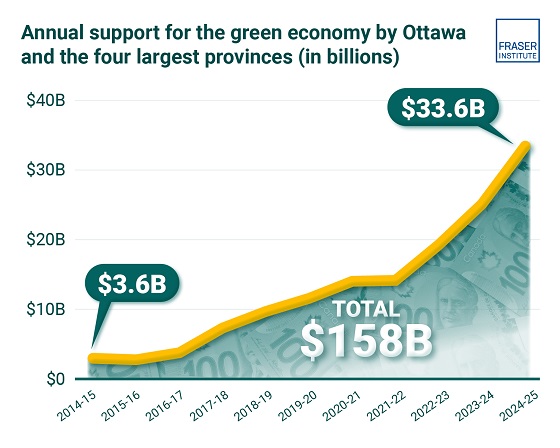Business
Judge allows Elon Musk’s ‘thermonuclear’ lawsuit against Media Matters to proceed

From LifeSiteNews
Elon Musk accuses Media Matters of manufacturing images to falsely accuse his social media platform X of putting advertisers next to Nazi content.
A federal judge has ruled that anti-woke, pro-free-speech tech mogul Elon Musk’s lawsuit against far-left Media Matters for America (MMFA) can proceed, keeping alive a “thermonuclear” challenge to the notorious organization’s practices that could set a major precedent.
Last November, Musk, the Tesla owner whose purchase of Twitter and transformation of it into X has upended left-wing activists’ monopoly on social media speech, filed a lawsuit against MMFA over an article it published accusing accusing Musk of having descended “into white nationalist and antisemitic conspiracy theories,” and “placing ads for major brands like Apple, Bravo (NBCUniversal), IBM, Oracle, and Xfinity (Comcast) next to content that touts Adolf Hitler and his Nazi Party.”
Musk responded that the article’s images were “manufactured” to create a false impression and “destroy” X. He vowed to launch a “thermonuclear lawsuit against Media Matters and ALL those who colluded in this fraudulent attack on our company,” promising to hold accountable the group’s’ “board, their donors, their network of dark money, all of them.”
On August 29, Bush-appointed U.S. District Court for the Northern District of Texas Judge Reed O’Connor rejected MMFA’s bid to have the suit dismissed.
“Plaintiff has provided sufficient allegations to survive dismissal,” he wrote. “Plaintiff has factually alleged: the existence of contracts subject to interference; intentional acts of interference; and proximate causation […] Plaintiff plausibly alleges that Defendants proximately caused their harm. Proximate cause requires proof of both cause-in-fact and foreseeability. Defendants present a compelling alternative version of events to Plaintiff’s. However, the Court will not ‘choose among competing inferences’ at this stage […] Accordingly, Plaintiff’s Amended Complaint alleges sufficient facts to state a claim of tortious interference with contract.”
Commenting on the ruling, George Washington University law professor Jonathan Turley wrote that “Musk’s lawsuit may be the most defining for our age of advocacy journalism” because it “directly challenges the ability of media outlets to create false narratives to advance a political agenda.”
“The complaint accuses Media Matters of running its manipulation to produce extremely unlikely pairings, such that one toxic match appeared for ‘only one viewer (out of more than 500 million) on all of X: Media Matters,’” Turley explained. “In other words, the organization wanted to write a hit piece connecting X to pro-Nazi material and proceeded to artificially create pairings between that material and corporate advertisements. It then ran the story as news.”
“Indeed, two defendant employees of Media Matters did not deny that they were aware of the alleged manipulation and that they were seeking to poison the well for advertisers in order to drain advertising revenues for X,” he added.
Media Matters describes its mission as “comprehensively monitoring, analyzing, and correcting conservative misinformation in the U.S. media,” but conservatives say its true mission is to demonize conservative voices and promote leftist narratives and misinformation. Leftist billionaire George Soros has supported the organization with millions in donations since its birth in 2004, though he did not go public with his support until 2010.
Media Matters founder David Brock has described the organization’s mission as “guerrilla warfare and sabotage” against Fox News but has long since branched out to other major outlets deemed out of step with the Left. It has also advocated censoring conservatives on social networks such as Facebook, to which Musk’s purchase and transformation of Twitter stands in opposition.
In 2021, Media Matters was one of multiple left-wing groups that took credit for pressuring Facebook to ban LifeSiteNews, based on false claims of “COVID-19 and vaccine disinformation.”
Business
Clean energy transition price tag over $150 billion and climbing, with very little to show for it

From the Fraser Institute
By Jake Fuss, Julio Mejía, Elmira Aliakbari, Karen Graham and Jock Finlayson
Ottawa and the four biggest provinces have spent (or foregone revenues) of at least $158 billion to create at most 68,000 “clean” jobs since 2014
Despite the hype of a “clean” economic transition, governments in Ottawa and in the four largest provinces have spent or foregone revenues of more than $150 billion (inflation-adjusted) on low-carbon initiatives since 2014/15, but have only created, at best, 68,000 clean jobs, according to two new studies published by the Fraser Institute, an independent, non-partisan Canadian public policy think-tank.
“Governments, activists and special interest groups have been making a lot of claims about the opportunities of a clean economic transition, but after a decade of policy interventions and more than $150 billion in taxpayers’ money, the results are
extremely underwhelming,” said Elmira Aliakbari, director of natural resource studies and co-author of The Fiscal Cost of Canada’s Low-Carbon Economy.
The study finds that since 2014/15, the federal government and provincial governments in the country’s four largest provinces (Ontario, Quebec, Alberta and British Columbia) combined have spent and foregone revenues of $158 billion (inflation adjusted to 2024 dollars) trying to create clean jobs, as defined by Statistics Canada’s Environmental and Clean Technology Products Economic Account.
Importantly, that cost estimate is conservative since it does not account for an exhaustive list of direct government spending and it does not measure the costs from Canada’s other six provinces, municipalities, regulatory costs and other economic
costs because of the low-carbon spending and tax credits.
A second study, Sizing Canada’s Clean Economy, finds that there was very little change over the 2014 to 2023 period in terms of the share of the total economy represented by the clean economy. For instance, in 2014, the clean economy represented 3.1 per cent of GDP compared to 3.6 per cent in 2023.
“The evidence is clear—the much-hyped clean economic transition has failed to fundamentally transform Canada’s $3.3 trillion economy,” said study co-author and Fraser Institute senior fellow Jock Finlayson.
State of the Green Economy
- The Fiscal Cost of Canada’s Low-Carbon Economy documents spending initiatives by the federal government and the governments of Ontario, British Columbia, Alberta, and Quebec since 2014 to promote the low-carbon economy, as well as how much revenue they have foregone through offering tax credits.
- Overall, the combined cost of spending and tax credits supporting a low-carbon economy by the federal government and the four provincial governments is estimated at $143.6 billion from 2014–15 to 2024–25, in nominal terms. When adjusted for inflation, the total reaches $158 billion in 2024 dollars.
- These estimates are based on very conservative assumptions, and they do not cover every program area or government-controlled expenditure related to the low-carbon economy and/or reducing greenhouse gas emissions.
- Sizing Canada’s Green Economy assesses the composition, growth, share of Gross Domestic Product (GDP) output, and employment of Canada’s “clean economy” from 2014 to 2023.
- Canada’s various environmental and clean technology industries collectively have accounted for between 3.07% and 3.62% of all-industry GDP over the 10-year period from 2014 to 2023. While it has grown, the sector as a whole has not been expanding at a pace that meaningfully exceeds the growth of the overall Canadian economy, despite significant policy attention and mounting public subsidies.
- The clean economy represents a respectable and relatively stable share of Canada’s $3.3 trillion economy. However, it remains a small part of Canada’s broader industrial mix, it is not a major source of export earnings, and it is not about to supplant the many other industries that underpin the country’s prosperity and dominate its international exports.
Agriculture
Cloned foods are coming to a grocer near you

This article supplied by Troy Media.
And you may never find out if Health Canada gets its way
Cloned-animal foods could soon enter Canada’s food supply with no labels identifying them as cloned and no warning to consumers—a move that risks public trust.
According to Health Canada’s own consultation documents, Ottawa intends to remove foods derived from cloned animals from its “novel foods” list, the process that requires a pre-market safety review and public disclosure. Health Canada defines “novel
foods” as products that haven’t been commonly consumed before or that use new production processes requiring extra safety checks.
From a regulatory standpoint, this looks like an efficiency measure. From a consumer-trust standpoint, it’s a miscalculation.
Health Canada argues that cloned animals and their offspring are indistinguishable from conventional ones, so they should be treated the same. The problem isn’t the science—it’s the silence. Canadians are not being told that the rules for a controversial technology are about to change. No press release, no public statement, just a quiet update on a government website most citizens will never read.
Cloning in agriculture means producing an exact genetic copy of an animal, usually for breeding purposes. The clones themselves rarely end up on dinner plates, but their offspring do, showing up in everyday products such as beef, milk or pork. The benefits are indirect: steadier production, fewer losses from disease or more uniform quality.
But consumers see no gain at checkout. Cloning is expensive and brings no visible improvement in taste, nutrition or price.
Shoppers could one day buy steak from the offspring of a cloned cow without any way of knowing, and still pay the same, if not more, for it.
Without labels identifying cloned origin, potential efficiencies stay hidden upstream. When products born from new technologies are mixed with conventional ones, consumers lose their ability to differentiate, reward innovation or make an informed choice. In the end, the industry keeps the savings while shoppers see none.
And it isn’t only shoppers left in the dark. Exporters could soon pay the price too. Canada exports billions in beef and pork annually, including to the EU. If cloned origin products enter the supply chain without labelling, Canadian exporters could face additional scrutiny or restrictions in markets where cloning is not accepted. A regulatory shortcut at home could quickly become a market barrier abroad.
This debate comes at a time when public trust in Canada’s food system is already fragile. A 2023 survey by the Canadian Centre for Food Integrity found that only 36 per cent of Canadians believe the food industry is “heading in the right direction,” and fewer than half trust government regulators to be transparent.
Inserting cloned foods quietly into the supply without disclosure would only deepen that skepticism.
This is exactly how Canada became trapped in the endless genetically modified organism (GMO) debate. Two decades ago, regulators and companies quietly introduced a complex technology without giving consumers the chance to understand it. By denying transparency, they also denied trust. The result was years of confusion, suspicion and polarization that persist today.
Transparency shouldn’t be optional in a democracy that prides itself on science based regulation. Even if the food is safe, and current evidence suggests it is, Canadians deserve to know how what they eat is produced.
The irony is that this change could have been handled responsibly. Small gestures like a brief notice, an explanatory Q&A or a commitment to review labelling once international consensus emerges would have shown respect for the public and preserved confidence in our food system.
Instead, Ottawa risks repeating an old mistake: mistaking regulatory efficiency for good governance. At a time when consumer trust in food pricing, corporate ethics and government oversight is already fragile, the last thing Canada needs is another quiet policy that feels like a secret.
Cloning may not change the look or taste of what’s on your plate, but how it gets there should still matter.
Dr. Sylvain Charlebois is a Canadian professor and researcher in food distribution and policy. He is senior director of the Agri-Food Analytics Lab at Dalhousie University and co-host of The Food Professor Podcast. He is frequently cited in the media for his insights on food prices, agricultural trends, and the global food supply chain.
Troy Media empowers Canadian community news outlets by providing independent, insightful analysis and commentary. Our mission is to support local media in helping Canadians stay informed and engaged by delivering reliable content that strengthens community connections and deepens understanding across the country.
-

 Alberta4 hours ago
Alberta4 hours agoFrom Underdog to Top Broodmare
-

 Media1 day ago
Media1 day agoCarney speech highlights how easily newsrooms are played by politicians
-

 Business1 day ago
Business1 day agoThe painful return of food inflation exposes Canada’s trade failures
-

 Business6 hours ago
Business6 hours agoPaying for Trudeau’s EV Gamble: Ottawa Bought Jobs That Disappeared
-

 Business9 hours ago
Business9 hours agoCBC uses tax dollars to hire more bureaucrats, fewer journalists
-

 National7 hours ago
National7 hours agoElection Officials Warn MPs: Canada’s Ballot System Is Being Exploited
-

 Economy1 hour ago
Economy1 hour agoIn his own words: Stunning Climate Change pivot from Bill Gates. Poverty and disease should be top concern.
-

 Addictions3 hours ago
Addictions3 hours agoThe Shaky Science Behind Harm Reduction and Pediatric Gender Medicine










